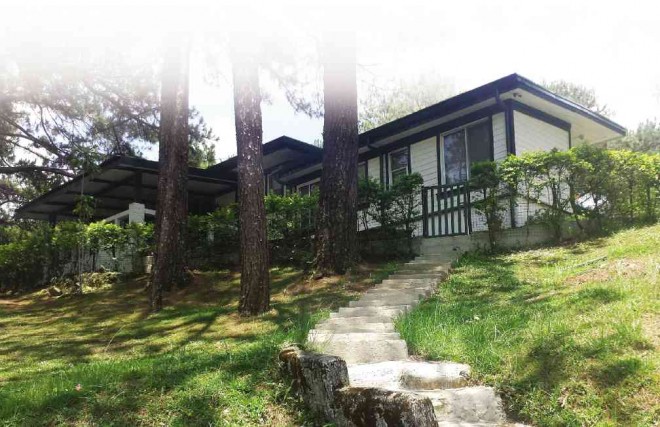CA stops evictions in Camp John Hay

EVICTED NO MORE Occupants of Camp John Hay, who purchased home lots, forest cabins or hotel units, were being evicted in April as a consequence of an arbitration ruling made to resolve the feud between government and the Camp John Hay Development Corp., the developer. This week, the Court of Appeals said their rights to their possessions should be honored, and ordered a Baguio court to spare them from eviction. EV ESPIRITU/INQUIRER NORTHERN LUZON
BAGUIO CITY—The Court of Appeals (CA) on Thursday permanently stopped a Baguio court from evicting homeowners and business establishments inside Camp John Hay, an order welcomed by more than 1,000 residents, business locators and investors in the former American rest and recreation center here.
In a 67-page decision, the CA’s former Special Fifth Division said occupants of structures in Camp John Hay are “lawful possessors” of their forest cabins, home lots or hotel rooms which they “acquired in good faith and for value from the developer, Camp John Hay Development Corp. (CJHDevco).”
“This brings some sensibility [to the prolonged dispute between the government and CJHDevco],” said Australian Michael Conduit, who has been living in Camp John Hay since 2009 with Filipino wife, Delilah. They were among those served a vacate order in April by a Baguio court sheriff.
A Baguio court had instructed the sheriff to execute a judgment made on Feb. 11 by an arbitration tribunal which rescinded the original 1996 lease agreement to develop Camp John Hay. The arbiters concluded that CJHDevco and the property’s administrator, the Bases Conversion and Development Authority (BCDA), had violated their contract so many times that the dispute had become irreparable.
The tribunal said BCDA must reimburse the developer’s rent payments worth P1.42 billion.
Article continues after this advertisementIt also directed CJHDevco to return more than 240 hectares of leased property “inclusive of all new constructions and permanent improvements… in good and tenantable condition in all respects, reasonable wear and tear excepted.”
Article continues after this advertisementThe eviction notices were addressed to CJHDevco and “all persons claiming rights under them,” including third party occupants of Camp John Hay.
Fifty of the sublessees, including the Camp John Hay Golf Club and the CAP (College Assurance Plan)-John Hay Trade and Cultural Center, asked the CA to intervene.
The CA directed BCDA “to respect and not to disturb the various contracts of the third parties occupying the leased premises.”
“Execution of a judgment can only be issued against one who is a party to the action, and not against one who, not being a party… did not have his day in court,” it said.
Baguio Regional Trial Court Judge Cecilia Corazon Archog, who is executing the arbitral judgment, had directed BCDA and CJHDevco to undergo arbitration.
But the CA ruling stopped her from enforcing the arbitral judgment on CJHDevco until BCDA is allowed by the Commission on Audit to release the developer’s reimbursement.
It also stopped Archog from enforcing the arbitral judgment on the third parties “for the time being… until their respective rights and interests are determined under compulsory arbitration or as may be adjudicated by regular courts.”
“Given the transcendental importance, novelty, complexity [of issues being addressed]… to resolve this case… this case is deemed to be in a class of its own,” the CA said.
It said the case involved the government and Camp John Hay occupants with “valid and legally enforceable contracts,” who are at the same time sublessees of a contract that had been extinguished.
The CA directed the petitioners and their intervenors “to submit themselves to arbitration with BCDA pursuant to the provisions of the original lease agreement which are equally binding on the third parties.”
Many homeowners expressed anxiety over this part of the CA ruling, during a Friday news conference called by Robert John Sobrepeña, CJHDevco chair.
Rafael Evangelista, one of the homeowners, said: “The dispositive portion [of the CA decision] mandates the third parties to submit themselves to arbitration… In other words, the obligation of clearing the air for third parties, unfortunately, is being thrust back at us. [The CA says] we must take the initiative of clearing the air.”
Sobrepeña said the CA ruling proves that business can protect itself when “the government goes wrong.”
Lawyer Peter Paul Flores, BCDA legal officer, said they may appeal the ruling in the Supreme Court.